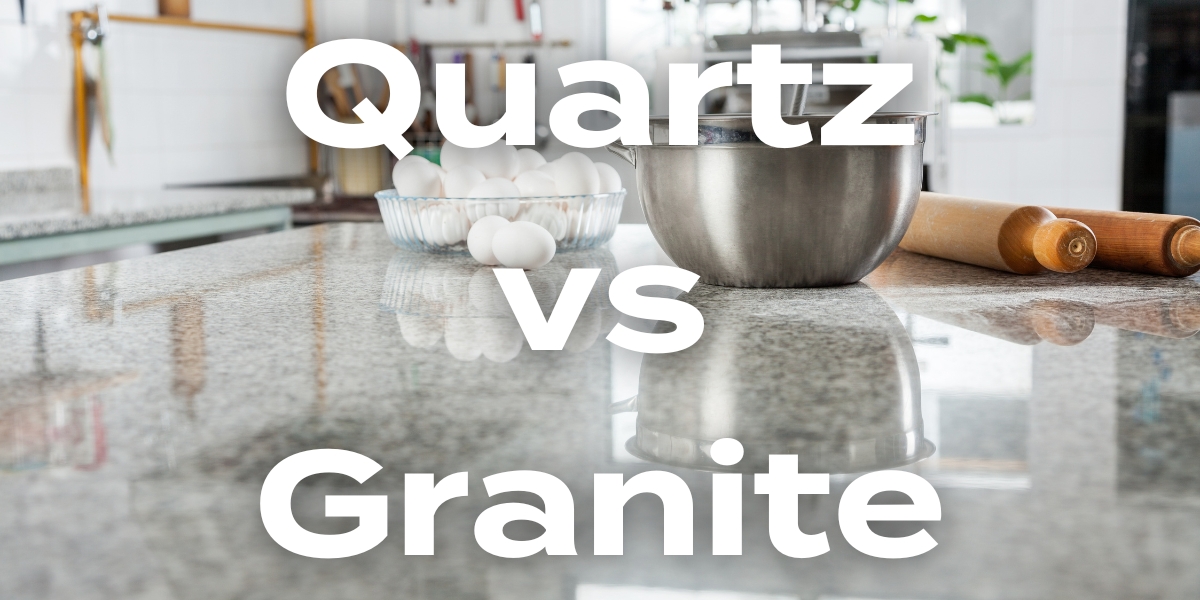Quartz Countertop Cleaning & Care Guide
March 22, 2024Not all stone is created equal, especially when it comes to choosing a material for your countertops. Granite and quartz are both popular options, but is one actually any better than the other?
Visual Differences
The visual differences between granite and quartz mainly come down to personal taste.
- Granite: Natural stone with natural variations.
- Quartz: More consistency and color options.
Still confused? We’ll break down each option below.
The Hard Facts On Granite
Granite counters are mined from pure stone, sawed into slabs, and then polished for installation.
This natural stone is very hard and durable. Granite comes in a variety of unique colors and patterns, including: beige, black, blue, brown, burgundy, gray, green, and more.
Color, rarity, and the slab’s width and thickness can all affect its price. Since this stone is 100% natural, your granite countertop will be unique. It’s also the most durable natural countertop material on the market.
Granite Pros
- 100% authentic stone with lower carbon emissions.
- Heat resistant; can withstand the heat of pots and pans without damage.
- High resale value due to popularity.
Granite Cons
- Requires maintenance and upkeep – may require resealing once a year.
- Should be cleaned daily with soap and water or a mild cleaner.
- Susceptible to staining from non-evaporative liquids like oils.
- While granite is heat resistant, its sealant is not. Use a hot pad for very hot pans to prevent damage.
The Qualities of Quartz
Quartz is an eco-friendly blend of crushed glass, quartz, and polymer resins.
Engineered quartz is harder and more durable than granite. Its color can be altered to match your design scheme.
Quartz Pros
- Harder than granite and more resistant to damage.
- Non-porous, making it resistant to spills.
- Virtually maintenance-free with regular cleaning.
Quartz Cons
- Resins in quartz are not heat resistant. Avoid placing hot pans directly on the surface.
- Prolonged exposure to direct sunlight may cause damage.
- Damaged quartz is difficult to repair and should be done by a professional.
We’re Here To Help You Choose
To help you narrow down color and style choices, we offer samples of all our countertop materials at Von Tobel. We can also help you coordinate with other design elements, such as cabinets and backsplashes.
We always suggest that customers start by visiting their local Von Tobel showroom for a free consultation with one of our designers.
Additional Resources
- Check out our Countertop Comparison chart here.
- When you’re ready to start thinking about upgrading your entire kitchen, check out our post on the 7 steps to take while planning a new kitchen.

